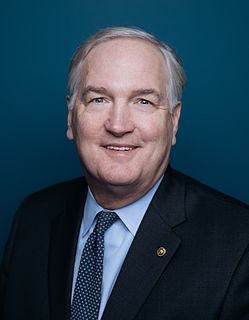A Quote by Seth Moulton
The EPA issued the MATS rule in 2012, and it is the first national standard created to address power plant emissions of toxic air pollutants. Under MATS, power plants are required to install equipment to reduce emissions of specific pollutants, such as mercury and sulfur dioxide.
Related Quotes
This generation has altered the composition of the atmosphere on a global scale through radioactive materials and a steady increase in carbon dioxide from the burning of fossil fuels. Entire regional airsheds, crop plant environments, and river basins are heavy with noxious materials. Motor vehicles and home heating plants, municipal dumps and factories continually hurl pollutants into the air we breathe. Each day almost 50,000 tons of unpleasant, and sometimes poisonous, sulfur dioxide are added to the atmosphere, and our automobiles produce almost 300,000 tons of other pollutants.
... laws governing pollution tend to move pollutants from one medium to another. So, for example, we scrub SO2 from power plants only to dispose toxic sludge on land. We "clean" water only to disperse toxic-laced solids on farmland or landfills. Pollution control becomes a kind of giant shell game by which we move pollutants between air, water, groundwater, and land.
Today, about 40 percent of America's carbon pollution comes from our power plants. There are no federal limits to the amount those plants can pump into the air. None. We limit the amount of toxic chemicals like mercury, and sulfur, and arsenic in our air and water, but power plants can dump as much carbon pollution into our atmosphere as they want. It's not smart, it's not right, it's not safe, and I determined it needs to stop.
President Bush insisted today that he was not caving in to big-money contributors, big-time lobbyists, and overall industry pressure when he broke a campaign promise to regulate carbon dioxide emissions from power plants. But the air was thick today with accusations from people who believe that's exactly what happened.
Coal ash gets far less attention than toxic and greenhouse gas emissions from power plants, but it has created environmental and health problems - every major river in the Southeast has at least one coal ash pond - and continuing legal troubles and large cleanup costs for the authority and other utilities.
































